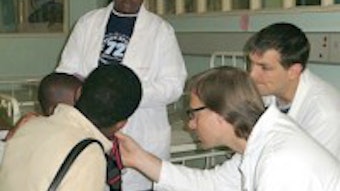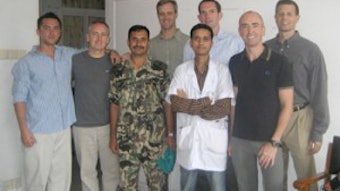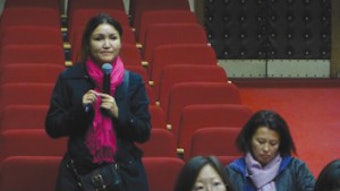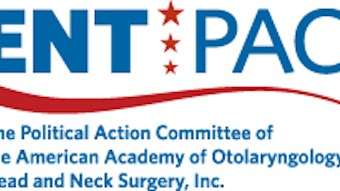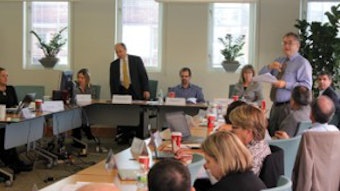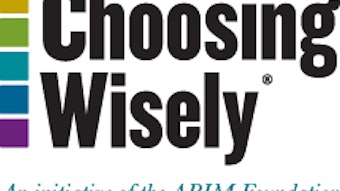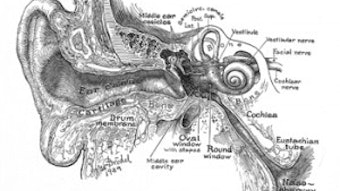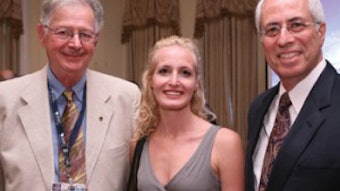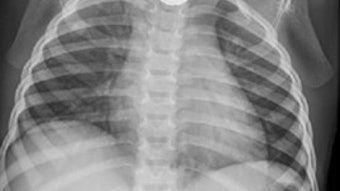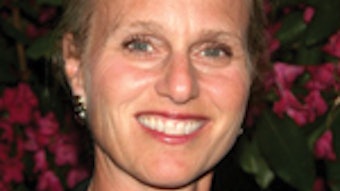The Power of Personal Influence
I fondly remember as a child that the month of February was a celebratory month, a patriotic month—almost like July, in which we focus on our political freedoms and our independence as a nation. Of course, this was primarily because of the two separate holidays recognizing the birthdays of Presidents George Washington and Abraham Lincoln. The influence for good that the lives of these two men still engender is remarkable. Even though we combine our recognition of their contributions to our national, political, and moral foundations into one single holiday, Presidents Day, their popularity as leaders and their power to influence our thinking and our popular culture is arguably as great today as it has ever been. We have added to this season of recognition the name of Dr. Martin Luther King, Jr., whose life, courage, and vision for social justice and political equality we honor each year during the month of January. Globally, we can think of many others—Churchill, Gandhi, and Mother Theresa—who define the actions of great people who have inspired our collective conscience to greater humanity. Reflecting on these leaders has caused me to want to reprise a sentiment I expressed before. More than 100 years ago, the editor of The Saturday Evening Post, William George Jordan, a great humanist, lecturer, and essayist, described in his monograph, “The Majesty of Calmness,” what he termed, “the power of personal influence.” He correctly points out that we all influence the world around us, whether we know it or not…or even intend to do so. He writes, “The only responsibility that a man cannot evade in this life is the one he thinks of least, his personal influence. Man’s conscious influence, when he is on dress-parade, when he is posing to impress those around him, is woefully small. But his unconscious influence, the silent, subtle radiation of his personality, the effect of his words and acts, the trifles he never considers, is tremendous. Every moment of life he is changing to a degree the life of the whole world.”1 During the last year, I have been impressed with the number of amazing people I know, many of them colleagues, members and leaders of the Academy and subspecialties, who quietly go about doing great work and great good. They seek no personal recognition, nor are they motivated by money or power. Those who are among our ranks as physicians have a deep-seated desire to improve the world around them, contribute to the relief of their patients, and help find solutions to the many perplexing issues facing American medicine today. Although I would like to mention them by name, I cannot begin, because even a cursory list would take up more space than this entire column. But I take the time and space in this article to honor you, my colleagues, for your quiet heroism, for the daily battles you fight and win to give more than you get, how you serve with cheerfulness those who are suffering, and heal, inspire, and encourage those beset with poor health or disability. There is no greater calling than to positively change lives by restoring to strength and vigor when possible those who are weak and sick among us. I have saved some last minute comments to remind us of what will be old news by the time this is published: that the Congress has again delayed acting on the fiscal imperatives facing the nation, including a permanent solution to the untenable SGR formula. What does this have to do with our honored heroes? While we may have a tendency to romanticize the lives of those listed above, they forged their reputations in great political, social, financial, and personal struggle. As dire as our current economic situation may seem, it probably pales compared to the political, economic, and social uncertainties our Founding Fathers faced. We cannot take over Congress’ job, but we can choose to act, rather than be acted upon. Let us embrace quality improvement for its own sake and the benefit of our patients, not for political reasons. Let us engage in the Choosing Wisely® campaign by personally examining and identifying ways in which we can avoid unnecessary or needlessly expensive care; educating our patients about the best use of resources; and being stewards of the public health and the health of our individual patients. You will hear more in the next few months about the Academy’s public stance to improve health and partner with other physician organizations to provide the best care possible, which is our vision. Reference Jordan, William George. The Majesty of Calmness; Individual Problems and Possibilities. Electronic version produced by Curtis A. Weyant, Charles Franks, and the Distributed Proofreading Team; Chapter Three: The Power of Personal Influence (original publication 1900).
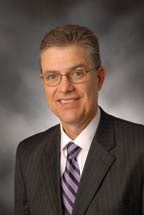 David R. Nielsen, MD, AAO-HNS/F EVP/CEO
David R. Nielsen, MD, AAO-HNS/F EVP/CEOI fondly remember as a child that the month of February was a celebratory month, a patriotic month—almost like July, in which we focus on our political freedoms and our independence as a nation. Of course, this was primarily because of the two separate holidays recognizing the birthdays of Presidents George Washington and Abraham Lincoln. The influence for good that the lives of these two men still engender is remarkable. Even though we combine our recognition of their contributions to our national, political, and moral foundations into one single holiday, Presidents Day, their popularity as leaders and their power to influence our thinking and our popular culture is arguably as great today as it has ever been. We have added to this season of recognition the name of Dr. Martin Luther King, Jr., whose life, courage, and vision for social justice and political equality we honor each year during the month of January. Globally, we can think of many others—Churchill, Gandhi, and Mother Theresa—who define the actions of great people who have inspired our collective conscience to greater humanity.
Reflecting on these leaders has caused me to want to reprise a sentiment I expressed before. More than 100 years ago, the editor of The Saturday Evening Post, William George Jordan, a great humanist, lecturer, and essayist, described in his monograph, “The Majesty of Calmness,” what he termed, “the power of personal influence.” He correctly points out that we all influence the world around us, whether we know it or not…or even intend to do so. He writes, “The only responsibility that a man cannot evade in this life is the one he thinks of least, his personal influence. Man’s conscious influence, when he is on dress-parade, when he is posing to impress those around him, is woefully small. But his unconscious influence, the silent, subtle radiation of his personality, the effect of his words and acts, the trifles he never considers, is tremendous. Every moment of life he is changing to a degree the life of the whole world.”1
During the last year, I have been impressed with the number of amazing people I know, many of them colleagues, members and leaders of the Academy and subspecialties, who quietly go about doing great work and great good. They seek no personal recognition, nor are they motivated by money or power. Those who are among our ranks as physicians have a deep-seated desire to improve the world around them, contribute to the relief of their patients, and help find solutions to the many perplexing issues facing American medicine today. Although I would like to mention them by name, I cannot begin, because even a cursory list would take up more space than this entire column. But I take the time and space in this article to honor you, my colleagues, for your quiet heroism, for the daily battles you fight and win to give more than you get, how you serve with cheerfulness those who are suffering, and heal, inspire, and encourage those beset with poor health or disability. There is no greater calling than to positively change lives by restoring to strength and vigor when possible those who are weak and sick among us.
I have saved some last minute comments to remind us of what will be old news by the time this is published: that the Congress has again delayed acting on the fiscal imperatives facing the nation, including a permanent solution to the untenable SGR formula. What does this have to do with our honored heroes? While we may have a tendency to romanticize the lives of those listed above, they forged their reputations in great political, social, financial, and personal struggle. As dire as our current economic situation may seem, it probably pales compared to the political, economic, and social uncertainties our Founding Fathers faced. We cannot take over Congress’ job, but we can choose to act, rather than be acted upon. Let us embrace quality improvement for its own sake and the benefit of our patients, not for political reasons. Let us engage in the Choosing Wisely® campaign by personally examining and identifying ways in which we can avoid unnecessary or needlessly expensive care; educating our patients about the best use of resources; and being stewards of the public health and the health of our individual patients. You will hear more in the next few months about the Academy’s public stance to improve health and partner with other physician organizations to provide the best care possible, which is our vision.
Reference
- Jordan, William George. The Majesty of Calmness; Individual Problems and Possibilities. Electronic version produced by Curtis A. Weyant, Charles Franks, and the Distributed Proofreading Team; Chapter Three: The Power of Personal Influence (original publication 1900).


